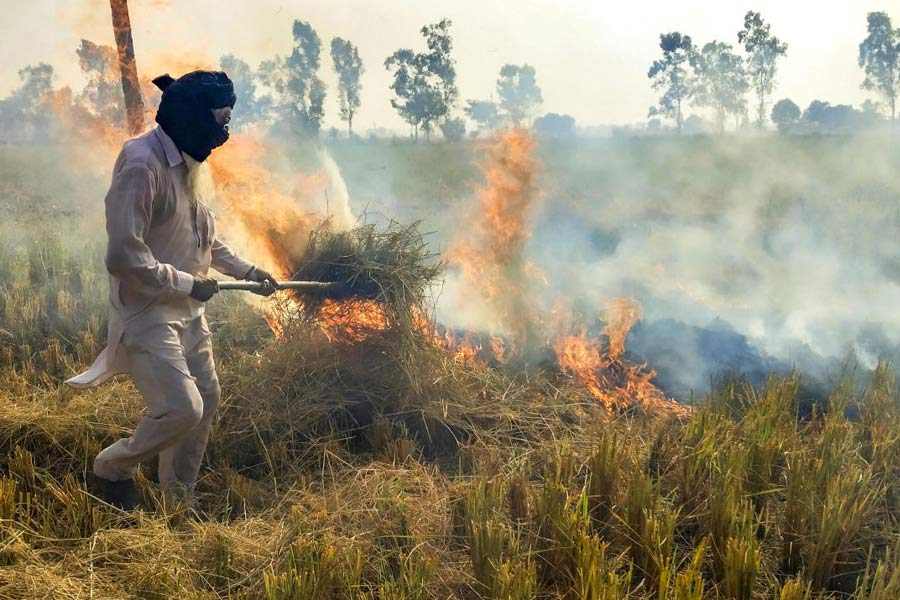The Centre has doubled the fine for farmers burning crop residue in view of the deteriorating air quality in the Delhi-NCR region, the penalty going up to Rs 30,000 for those with more than five acres of farmland.
According to the notification, which was published on Wednesday and comes following the Supreme Court's tough stance on the issue, farmers with less than two acres of land will now have to pay environmental compensation of Rs 5,000, up from Rs 2,500. And those with land between two and five acres will be fined Rs 10,000 instead of Rs 5,000.
Unfavourable meteorological conditions combined with vehicular emissions, paddy-straw burning, firecrackers, and other local pollution sources contribute to hazardous air quality levels in Delhi-NCR during late autumn and winters.
According to a Delhi Pollution Control Committee (DPCC) analysis, the city experiences peak pollution from November 1 to 15 when the number of stubble-burning incidents in Punjab and Haryana increases.
Major factors behind stubble burning include the paddy-wheat cropping system, cultivation of long-duration paddy varieties, mechanised harvesting that leaves standing crop stubble in the field, labour scarcity, and the lack of a viable market for crop residue.
Studies estimate that during peak burning periods, farm fires contribute up to 30 per cent of PM levels in the Delhi-NCR region and surrounding areas.
However, according to senior environmentalist Sunita Narain, the episodic burning of crop residue by farmers in winter is not the primary concern for poor air quality in Delhi-NCR. Instead, the persistent and major sources of pollution within the city, including transport and industries, are more worrisome.
Except for the headline, this story has not been edited by The Telegraph Online staff and has been published from a syndicated feed.










